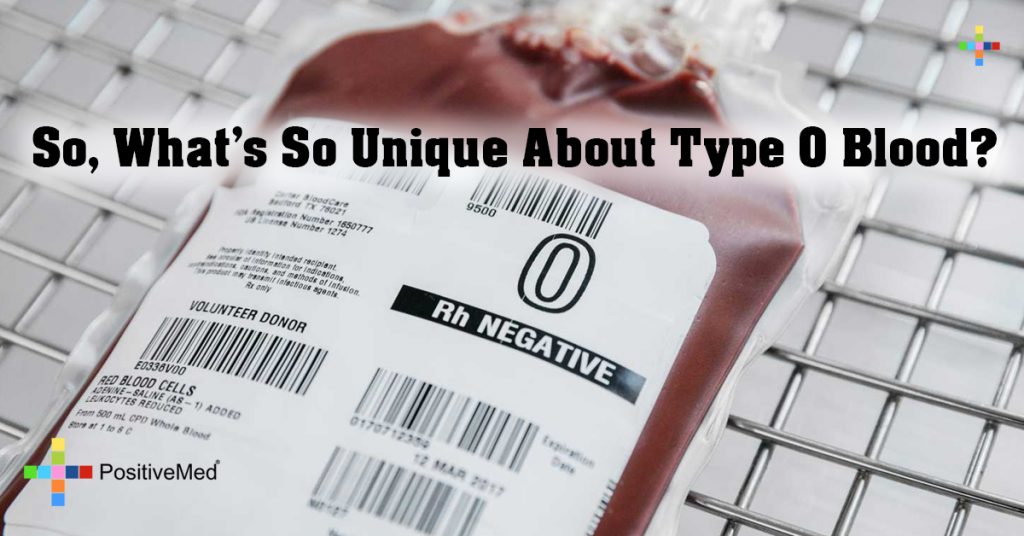
So, What’s So Unique About Type O Blood?
According to the American Red Cross, approximately 45 percent of people in the United States have type O blood. Of these, 38 percent are O positive and 7 percent are O negative. People with type O blood have some unique characteristics.

Universal Blood Donors
People with type O blood do not have A or B antigen proteins on their red blood cells. Individuals having O negative blood do not have the Rh factor while people with O positive blood are Rh positive. Type O blood is a great resource in times of emergencies. In terms of donating blood:
• O positive blood transfusions are accepted by people with O positive, A positive, B positive or AB positive blood. However, O positive people can only receive O positive or O negative blood.
• O negative blood transfusions are accepted by patients having O positive or negative, A positive or negative, B positive or negative, AB positive or negative blood. Unfortunately, O negative people can only receive O negative blood.
The blood plasma in type O blood contains A and B antibodies. As such, patients having type O blood can receive plasma from any blood type. Due to the antibodies, type O plasma can only be transfused to type O patients.
Health Conditions
Studies indicate that people with type O blood have a 23 percent reduced risk of developing cardiovascular diseases. You are also 37 percent less likely to suffer from the development of pancreatic cancer. Recent research concluded that a protein emitted by the parasites that cause malaria does not adhere well to type O blood, which provides protection against the disease. On the other hand, individuals having the blood type are more susceptible to the H. pylori bacteria that cause ulcers.
Dietary Recommendations
RELATED ARTICLE: Why You Should Never Skip a Blood Test
People having type O blood naturally produce a greater amount of stomach acid. This factor features favorably for digesting proteins. The recommended diet for people in this blood type grouping entails consuming plenty of lean meats, fish and poultry along with fruits and vegetables. However, diets should include less dairy products, grains and legumes. Individuals should also avoid alcoholic and caffeinated beverages as these substances lead to an increase in adrenaline, which is already produced in abundance in type O people.
Exercise Recommendations
A diet high in lean protein, fruits and vegetables provides plenty of fuel for brisk exercise. If not already physically active, strive to work up to 30 minutes of aerobic exercise three to four times each week. This type of activity offers full-body toning while enhancing cardiovascular and emotional health.
Active Sympathetic Nervous System
Japan and other Asian countries believe that there is a direct correlation between blood type and personality. The claim involves the presence and quantities of certain hormones that vary in blood types. Adrenaline and noradrenaline hormones signal the sympathetic system to go into a “fight or flight” mode.
READ ALSO: SCIENTISTS USE SMARTPHONES TO DETECT A PARASITIC WORM IN THE BLOOD
With an abundance of these stimulating chemical compounds flowing through the blood of type O people, a variety of personality traits are possible. Individuals might be quick to anger, inappropriately overreact and have temper tantrums. Type O people might also display hyperactivity or exhibit manic tendencies. The hormonal issues and nervous energy may lead to demonstrations of destructive behavior when a type O person experiences fatigue, boredom or depression.
On the other hand, positive personality traits include loyalty, passion and self-confidence. Considered competent in their endeavors, type O people are also often successful leaders or innovators.
While blood types may be linked to certain medical conditions, having type O blood does not necessarily ensure that you will stay healthy. Genetics also play a role in the development of diseases. Living a healthy lifestyle increases the chances of staying in great shape for all blood types.





